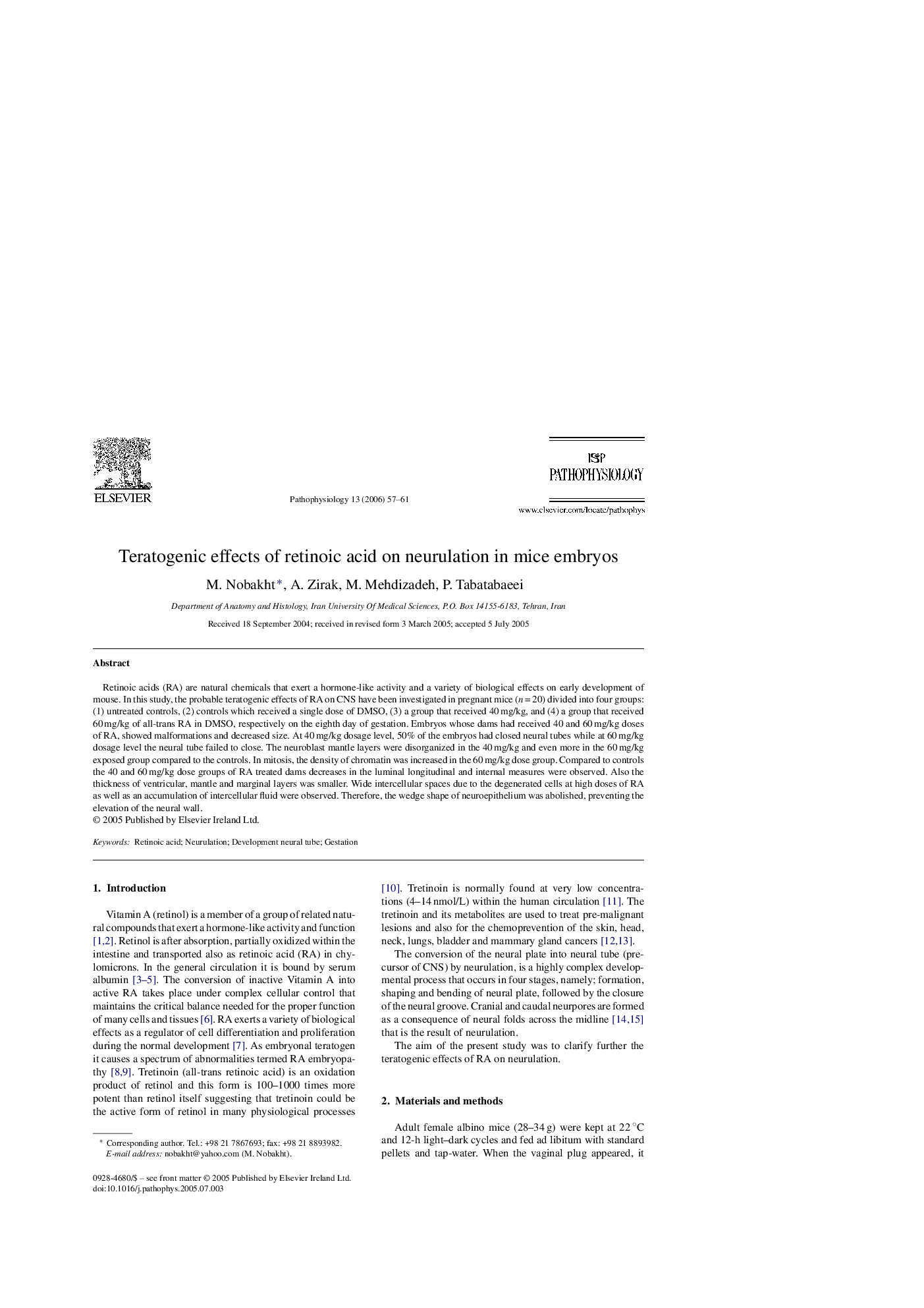| Article ID | Journal | Published Year | Pages | File Type |
|---|---|---|---|---|
| 4137358 | Pathophysiology | 2006 | 5 Pages |
Retinoic acids (RA) are natural chemicals that exert a hormone-like activity and a variety of biological effects on early development of mouse. In this study, the probable teratogenic effects of RA on CNS have been investigated in pregnant mice (n = 20) divided into four groups: (1) untreated controls, (2) controls which received a single dose of DMSO, (3) a group that received 40 mg/kg, and (4) a group that received 60 mg/kg of all-trans RA in DMSO, respectively on the eighth day of gestation. Embryos whose dams had received 40 and 60 mg/kg doses of RA, showed malformations and decreased size. At 40 mg/kg dosage level, 50% of the embryos had closed neural tubes while at 60 mg/kg dosage level the neural tube failed to close. The neuroblast mantle layers were disorganized in the 40 mg/kg and even more in the 60 mg/kg exposed group compared to the controls. In mitosis, the density of chromatin was increased in the 60 mg/kg dose group. Compared to controls the 40 and 60 mg/kg dose groups of RA treated dams decreases in the luminal longitudinal and internal measures were observed. Also the thickness of ventricular, mantle and marginal layers was smaller. Wide intercellular spaces due to the degenerated cells at high doses of RA as well as an accumulation of intercellular fluid were observed. Therefore, the wedge shape of neuroepithelium was abolished, preventing the elevation of the neural wall.
